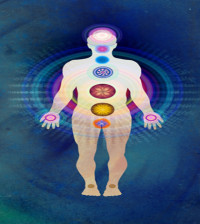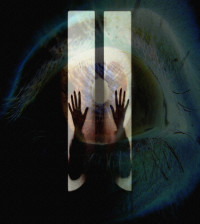- 5 Tips To Finding Peace Within Yourself
- The Do’s and Don’ts of Learning How to Accept Yourself
- How to Find Your Inner Peace and Transform Your Life
- 8 Benefits of Having an Open Mind and How to Get One
- Learn How To Be A Happier Person
- What Is The Meaning Of Life?
- Laws of Abundance – The Riches of Love and Joy
- How to Be Laid Back By Following These 9 Simple Strategies
- The meaning of confucius’ golden rule – 4 practical ways of living it
- 3 methods of unleashing the power of contentment in your life
3 Top Cognitive Behavior Therapy Techniques

Cognitive behavior therapy (CBT) is an effective technique for treating a wide variety of disorders and conditions. This therapy has one of the highest success rates of any behavioral-based therapy. Cognitive behavior therapy techniques have been shown to reduce symptoms of
- Eating disorders
- Anxiety disorders
- Depression
- Substance abuse
- Personality disorders
- Obsessive-Compulsive Disorder (OCD)
This therapy is usually led conducted by therapists over multiple sessions until the patient has shown the ability to utilize the techniques effectively without help. Cognitive Behavioral therapy uses various techniques including guided relaxation, exposure therapy, acceptance and commitment therapy and many more. All forms of CBT have 6 distinct phases, which are:
- Assessment
- Reconceptualization
- Acquisition of skills
- Consolidation of skills and application
- Generalization and maintenance
- Post treatment assessment and follow-up
Exposure Therapy
This is a specific type of behavioral treatment that exposes the patient to an object or situation that triggers the unwanted emotional or cognitive responses. Exposure therapy has been proven to be extremely effective in treating obsessive-compulsive disorder, post-traumatic stress disorder (PTSD) and panic attacks.
Typically, this technique will involve conditioning the person to the point where the fear-based response is reduced. The patient is exposed to the offending stimulus in gradual steps while the therapist helps him or her understand what they are feeling. The patient is not taught to avoid the offending object or behavior, instead they are encouraged to address it and accept it. Eventually, the patient does not respond with the same level of anxiety.
Guided Relaxation and Meditation
This form of therapy is highly effective for anxiety disorders. During guided relaxation sessions, the therapist will help the patient learn deep breathing and visualization techniques that help facilitate a more relaxed and calm state of mind. With enough practice the patient is typically able to use these relaxation techniques on their own to help manage stress and anxiety symptoms.
Meditation has been shown to reduce stress and increase levels of chemicals in the brain that are responsible for mood regulation and relaxation. Meditation helps clear the mind and eliminate unwanted emotions like anger, fear, resentment and sadness. When these emotions are not regulated properly they can result in neurotic behavior.
Acceptance and Commitment Therapy (ACT)
This type of therapy uses acceptance and commitment to facilitate behavioral changes. By practicing this form of therapy the patient becomes less rigid in their thinking and behavior, which leads to less anxiety. Practitioners of this therapy teach the patient that many problems are the result of FEAR, or
- Fusion with your Thoughts
- Evaluation of Experience
- Avoidance of Your Experience
- Reason-giving for Behavior
- After the patient has been trained in identifying these causes, he or she will be taught to:
- Accept Your Reactions and Be Present
- Choose a Valued Direction
- Take Action
Like many types of CBT, this therapy seeks to help the individual gain a broader perspective on the problem that they are facing. This step-by-step approach to identifying problems and taking specific actions to manage them has shown to be quite effective in treating several different behavioral and mood disorders.
Cognitive behavior therapy techniques have a very high success rate when it comes to treating distressed individuals. If you or someone you care about is considering CBT, the best course of action is to find a psychologist or licensed professional counselor who has several years of specialized training in CBT techniques. It takes hard work and determination, but this therapy can change your life and open you up to a future that you never thought was possible.








































You must be logged in to post a comment Login